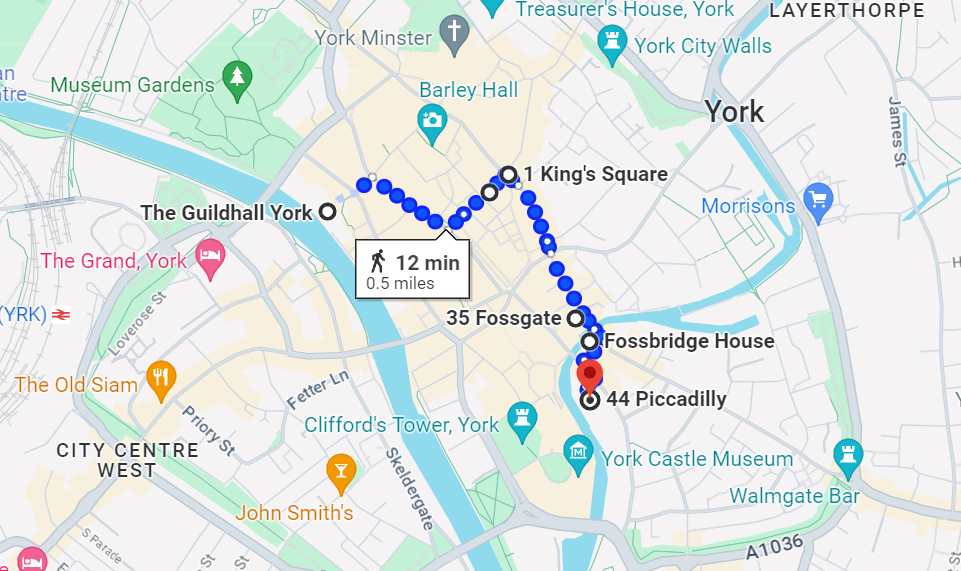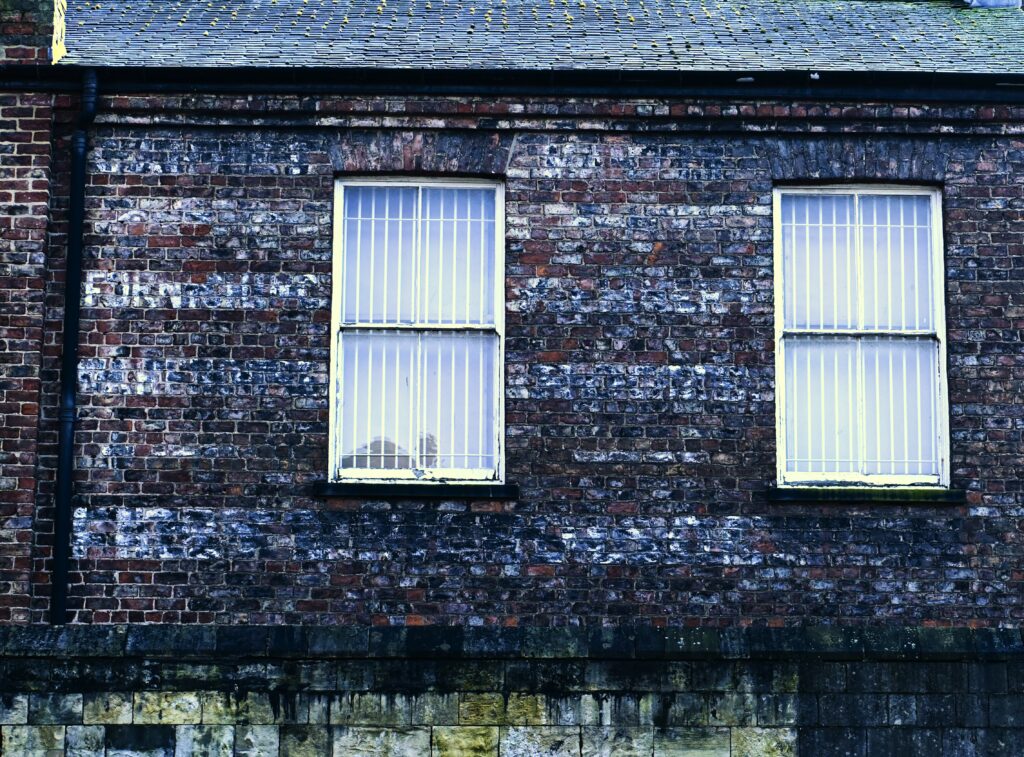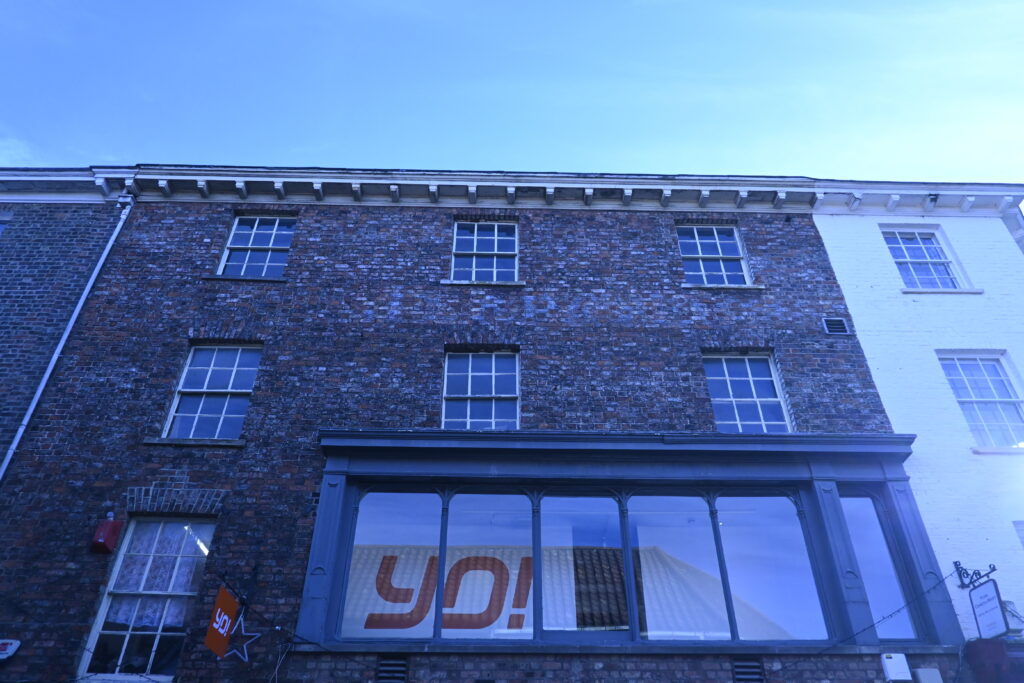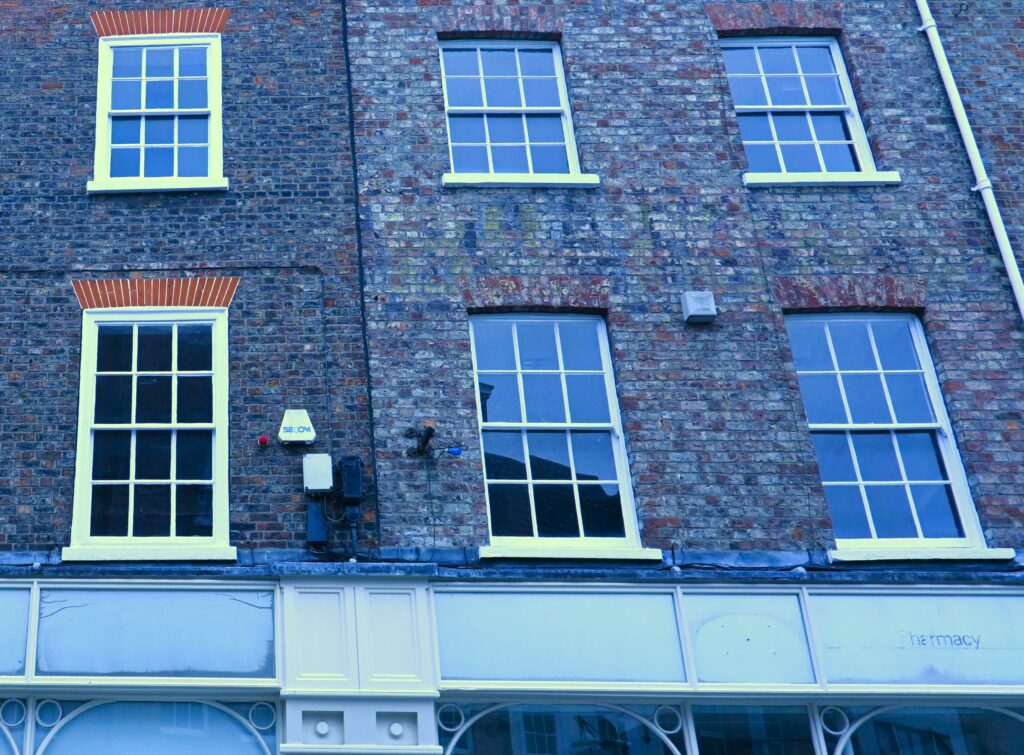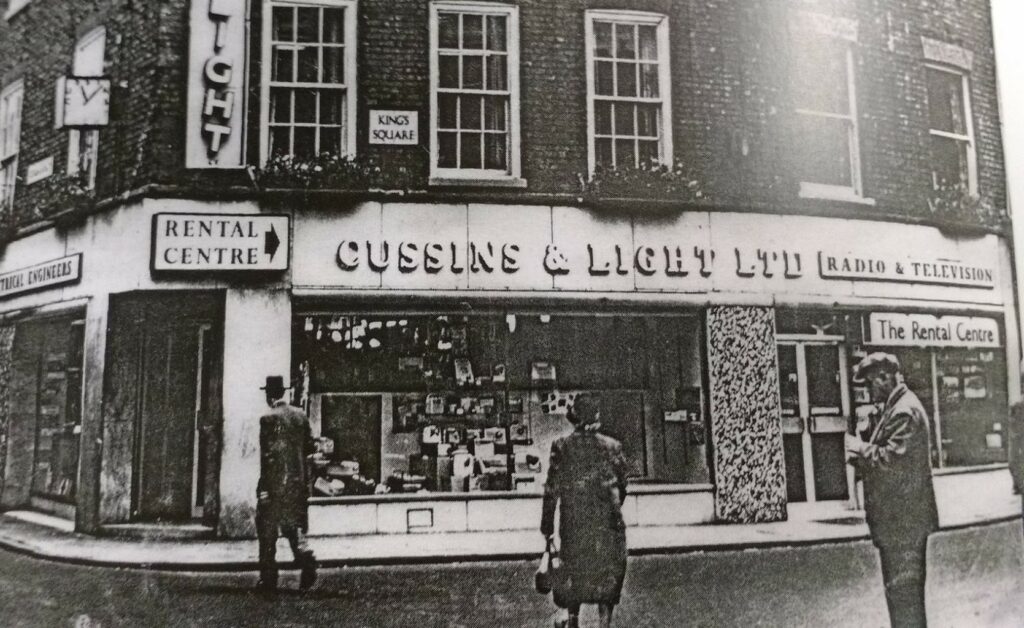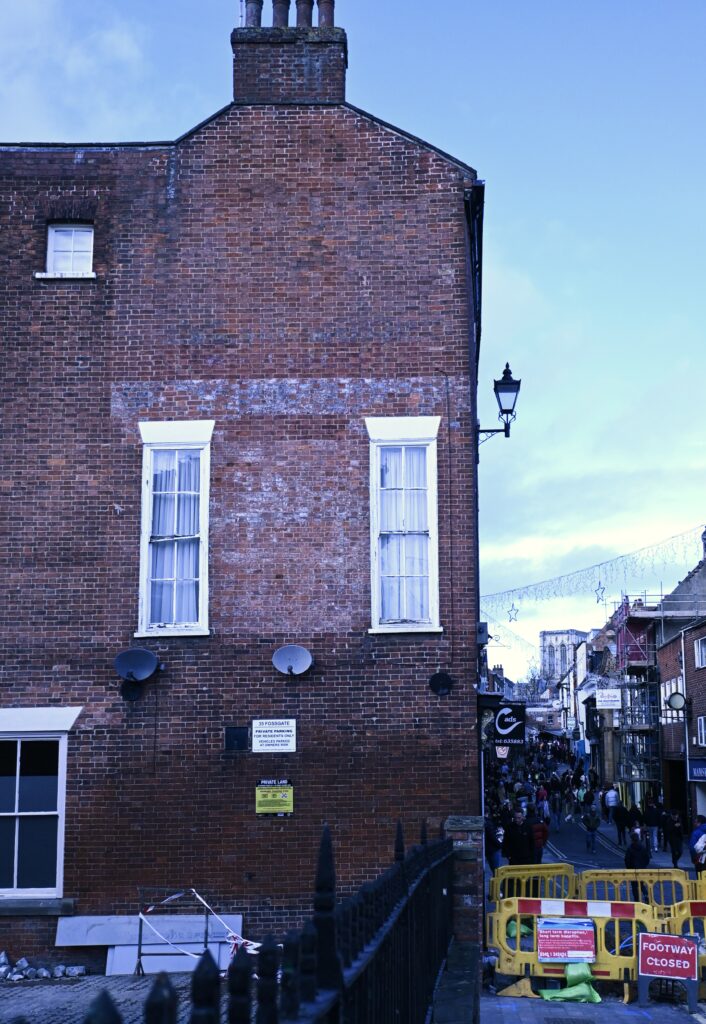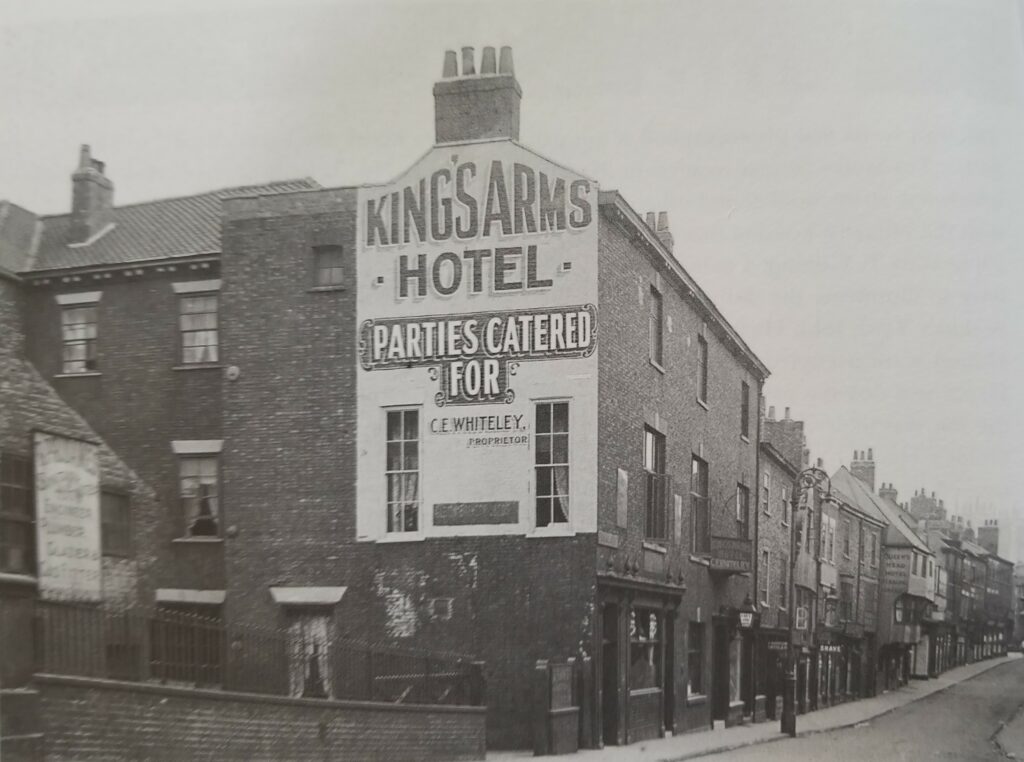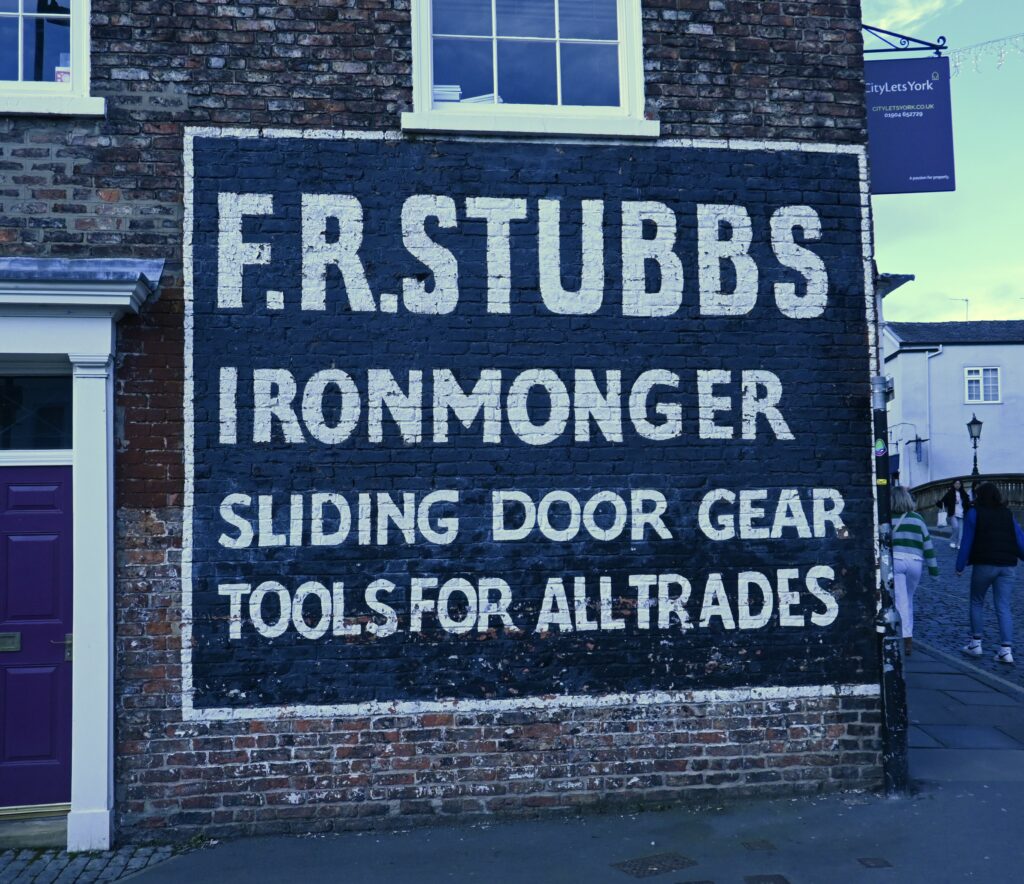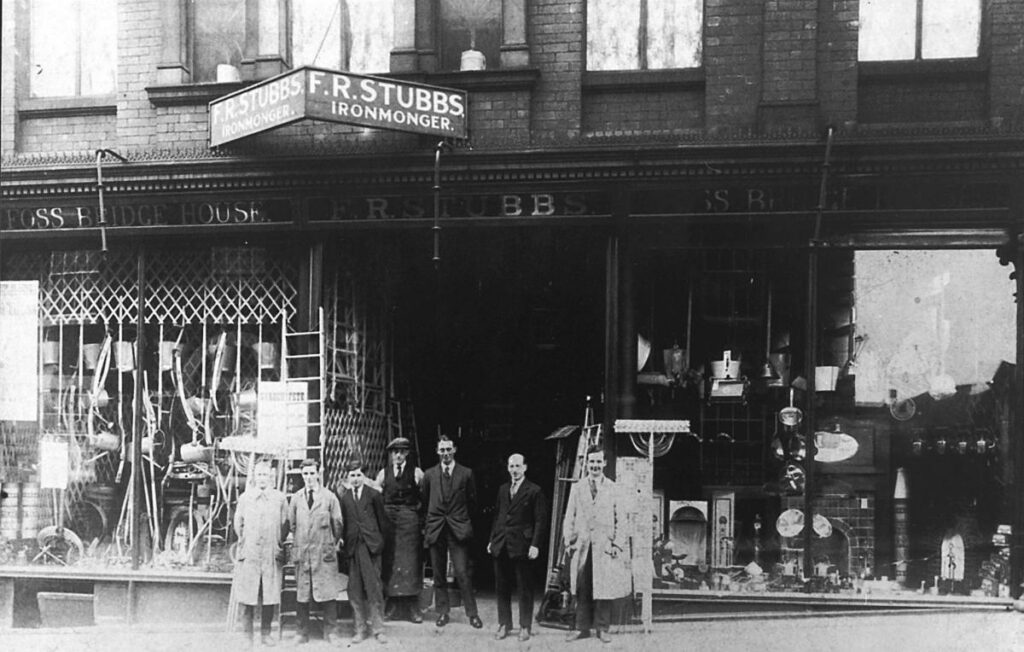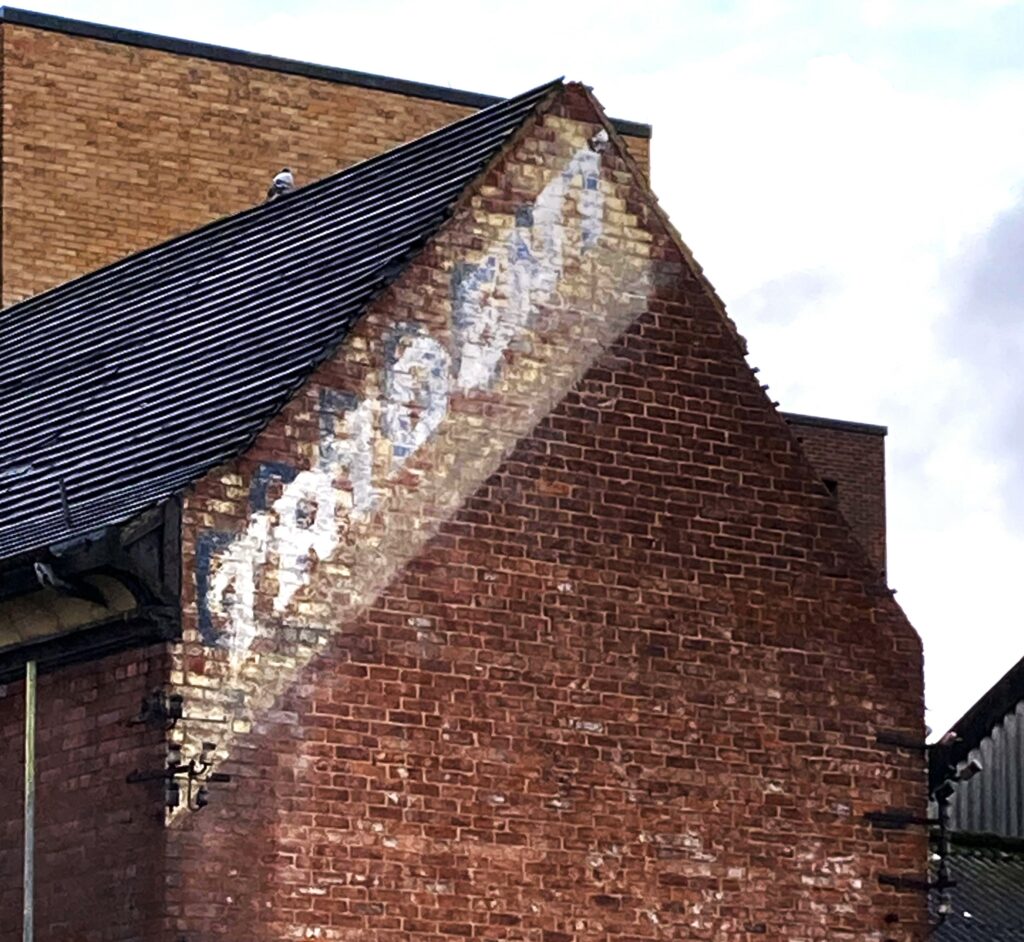This 20 minute walking tour is designed to guide you through the hidden treasures and forgotten stories encapsulated in these beautiful works of art.
The Route
Click here to follow along on Google Maps.
1. Kirby and Nicholson
Head inside the courtyard of the Guildhall on Coney Street.
On the left you can see six horizontal white lines of text sweep across the building, with 2 windows bisecting them. Words are largely unintelligible, except the word “furnishings” and “joinery”, and possibly “wholesale” on the left.
This building belonged to Kirby and Nicholson, a silk mercers, drapers, and ladies’ outfitter business established in 1876 by Potter-Kirby.
For more information about this ghost sign, click here.
2. W. Mackinder
Head further down Coney Street and turn left towards Church Street. At 15 Church Street above YO! Sushi, you can faintly make out a weathered paint on brick sign. Against a red background, bold black letters read ‘W. Mackinder’.
Wingate Mackinder, born in 1881, was a skilled tailor. He specialised in making mourning clothes, a significant social obligation in the early 20th Century.
For more information about this ghost sign, click here.
3. Cussins and Light
Just a few steps up the road on the corner of Kings Square lies another traditional paint on brick ghost sign. This building once belonged to “Cussins and Light” and the painted sign read “Electric Home Makers” painted in white.
The origins of Cussins and Light trace back to 1921 when two young men, Reggie Cussins and Pat Light formed a business partnership that lasted over fifty years.
After initially selling “wireless”, they transitioned into full-fledged electrical retailers, eventually adding electrical appliances to their product line.
For more information about this ghost sign, click here.
4. Kings Arms Hotel
Head down Colliergate and across the road to Fossgate. After a 2 mintute walk you will arrive at a small bridge, on the right at 35 Fossgate is the once beautiful Kings Arms Hotel ghost sign.
Established in 1876, the original premises included four cottages and a brewhouse, and were purchased that same year by William Walker.
The hotel flourished for over 80 years, changing ownership several times.
For more information about this ghost sign, click here.
5. Stubbs Ironmonger
At the very end of Fossgate on the corner of Loch Fyne, you will see the F.R. Stubbs hand painted ghost sign, reading “F.R.Stubbs / Ironmonger / Sliding Door Gear / Tools For All Trades”.
The business operated from this location from 1915 until it was put on the market in 2001. For decades, the store was regarded as one of York’s “Aladdin’s Caves,” where customers could find anything from six-inch nails to rare screwdrivers and everything in between.
For more information on this ghost sign, click here.
6. Trident
Around the corner and back up Piccadilly lives the Trident ghost sign, reaching diagonally up the wall on the side of the old Pine & Oak Furnishings & Interiors shop.
Originally, this location featured the word ‘Garage’ in diagonal font, signifying its role as Foxtons Garage during the 1930s.
However, by the 1970s, Foxtons Garage ceased operations on Piccadilly, and the original ‘Garage’ sign was overlaid with ‘Trident’ – a shop selling home electronics.
For more information about this ghost sign, click here.
We hope you enjoy discovering the paint on brick ghost signs of York and the stories they hold. As you follow this route, may each sign inspire a deeper appreciation for the city’s vibrant history and artistic heritage.
Got thoughts or a story to share? We’re all ears—drop your comments below and join the conversation!

